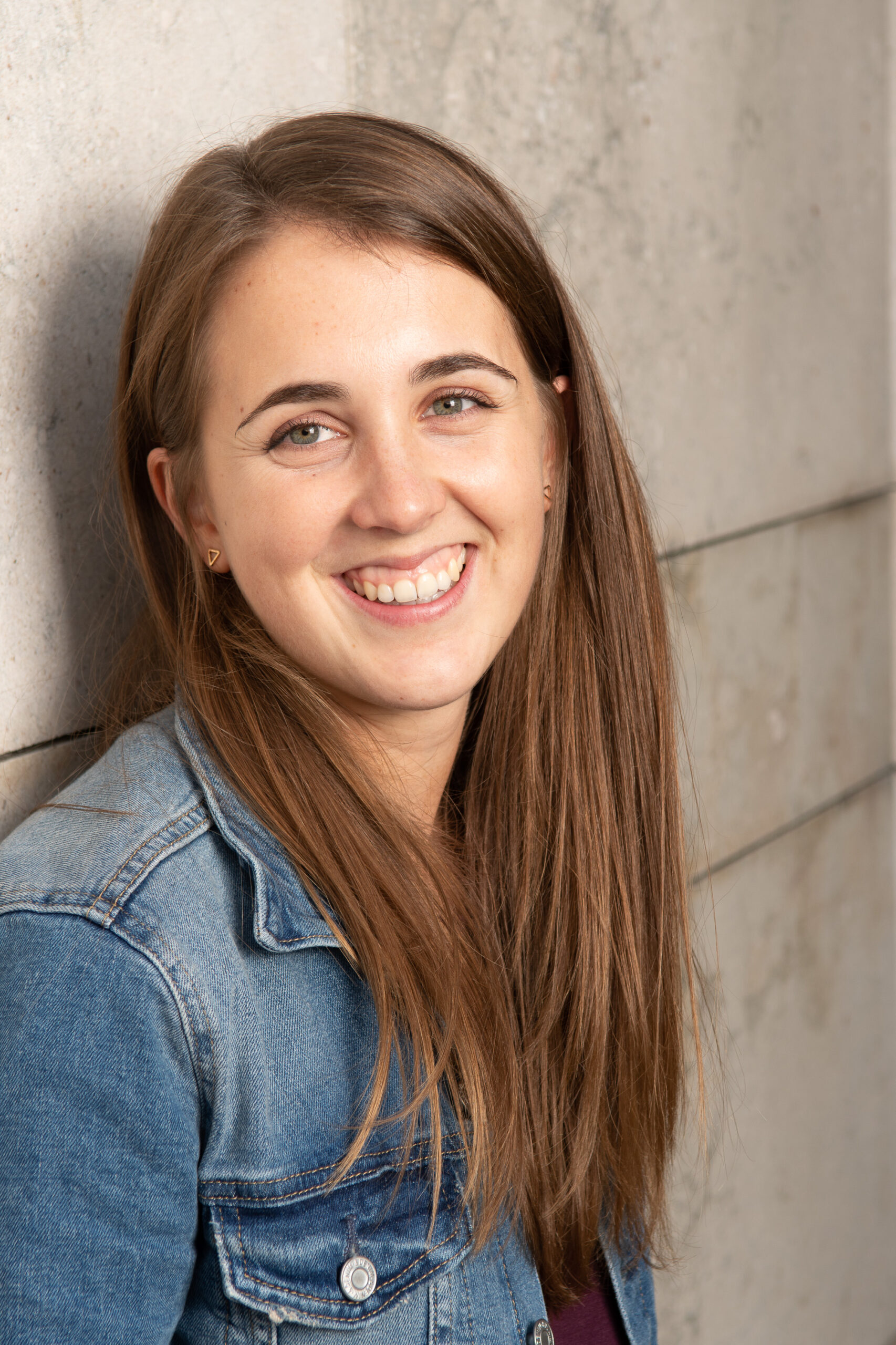
Monika Angerer, BSc. BA MSc.
PhD student
Department of Psychology
Hellbrunner Strasse 34, 5020 Salzburg, Austria
Tel.: +43 662 80445146
E-Mail:
Consultation hour: by arrangement
Twitter: Monika_Angerer
Research group: Laboratory for Sleep, Cognition & Consciousness Research
Education:
- Since 2020 Training in Clinical Psychology at the Austrian Academy for Psychology (AAP)
- Since 2019 Student of the Doctoral College “Imaging the Mind”
- Since 2017 PhD Program at the University of Salzburg (Department of Psychology)
- 2016-2018 Psychotherapeutic Propaedeutic at ÖGWG Linz
- 2015-2017 Studies of Psychology (Master, Specialization in Cognitive Neuroscience) at the University of Salzburg
- 2013-2016 Studies of Education (Bachelor) at the University of Salzburg
- 2012-2015 Studies of Psychology (Bachelor) at the University of Salzburg
Academic positions:
- Since 2017 PhD Student at the University of Salzburg (Department of Psychology)
- 2017 Research Assistant at the University of Salzburg (Laboratory for Sleep, Cognition & Consciousness Research)
- 2016-2017 Teaching Assistant for the VU “Methods in Cognitive Neuroscience” at the University of Salzburg (Department of Psychology)
Research:
I am using different physiological methods (actigraphy, skin temperature measurements, ECG) to investigate circadian (~24h) rhythms in patients with severe brain injuries. Specifically, I try to understand (1) how circadian rhythms change in disorders of consciousness, (2) if the integrity of those rhythms provides information about the patients’ consciousness level, and (3) if it is possible to re-entrain those rhythms to a healthy 24h-cycle and consequently improve the patients’ clinical state. Another aspect of consciousness research that fascinates me is prenatal learning. In a longitudinal design spanning from gestational week 34 up to 18 months of life, I aim to investigate in an upcoming study how pre- and postnatal maternal stress as well as mother-child bonding affects prenatal learning and cognitive development of new-borns and infants.
Key publications:
- Angerer, M., Pichler, G., Angerer, B., Scarpatetti, M., Schabus, M., & Blume, C. (2020). From Dawn to Dusk – Mimicking Natural Daylight Exposure Improves Circadian Rhythm Entrainment in Patients with Severe Brain Injury. OSF Preprints. DOI: 10.31219/osf.io/vk2d6.
- Angerer, M., Schabus, M., Raml, M., Pichler, G., Kunz, A. B., Scarpatetti, M., Trinka, E., & Blume, C. (2020). Actigraphy in brain-injured patients – A valid measurement for assessing circadian rhythms? BMC Medicine, 18(106). DOI: 10.1186/s12916-020-01569-y.
- Blume, C., Angerer, M., Raml, M., del Giudice, R., Santhi, N., Pichler, G., Scarpatetti, M., Kunz, A. B., Trinka, E., & Schabus, M. (2019). Healthier Rhythm, Healthier Brain? Integrity of Circadian Melatonin and Temperature Rhythms Relates to the Clinical State of Brain-Injured Patients. European Journal of Neurology, 26(8), 1051-1059. DOI: 10.1111/ene.13935.





